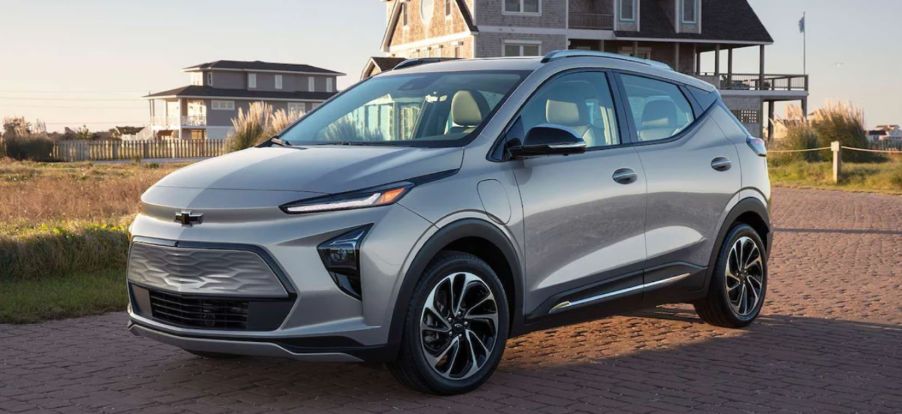
Another Chevy Bolt EV Fire Risk Recall: This Time It’s Not Batteries
We have good news and bad news about the Chevrolet Bolt EV. The bad is that there is yet, another recall over fire risks. Over 150,000 Bolts are involved in the recall. The good news is that this time it is not the batteries that are the culprit. Instead, it’s about carpet fires erupting due to seat belts. Yes, we’ll explain.
How can seat belt pretensioners cause a fire?

GM says this involves the seat belt pretensioners. In a crash, exhaust from a deployment can ignite the carpeting surrounding it. The pretensioners are located on the Bolt’s B-pillars. GM says those Bolts actually affected amounts to about one percent.
This is the second time in as many days we found that the source of the problem came from GM’s Speak Up For Safety program. It allows employees to submit issues or concerns anonymously. The internal submission was received on September 15, 2022.
In October, GM opened an investigation, which revealed three identical occurrences. By the first part of this month, the company initiated the recall. Owners will see notices by the end of January. Those Bolts involved in the recall campaign run from 2017 to 2023 models.
What is the fix for the Bolt recall?

Chevrolet dealers will install a foil shield around the pretensioners. Some Bolts may also need pretensioner covers. GM notes that Bolts built after October 25, 2022, have had these additional measures performed.
The Bolt’s history of recalls began in November 2020. That’s when GM recalled 2017 to 2019 models for battery fire risks. Owners were asked to bring their cars into dealerships to perform diagnostics and possible battery replacement. After a software fix in 2021 failed to stop Bolts from catching on fire, the NHTSA issued a consumer alert.
It suggests Bolt owners park their cars outside, and away from structures. By August, GM announced a recall to replace all Bolt batteries from 2017 to 2019. The following month GM added 2020 to 2022 models and halted production for a time.
How many Bolt EVs got a new battery?

Since then the NHTSA reported that more than half of 2017 to 2019 Bolts have had battery replacements according to insideevs. Newer Bolts have needed much fewer replacement batteries, estimated to be around two percent each year.
The upside is that with new batteries, these older Bolts have almost no battery degradation. And they’re a higher capacity battery than the original ones. Also, warranties begin when the batteries got replaced, not when the cars were new.
On another bit of news, Chevrolet has just instituted a number of price cuts for the 2023 Bolt. So for the next few months, starting January 1, the Bolt will be the cheapest new EV on the market. Part of this is due to the reinstatement of tax credits once again.
That amounts to a $7,500 credit. With that credit, the purchase price is just a hair over $18,000. This price could come down even more factoring in certain state incentives. Check with your state for potential further savings. Happy New Year!



